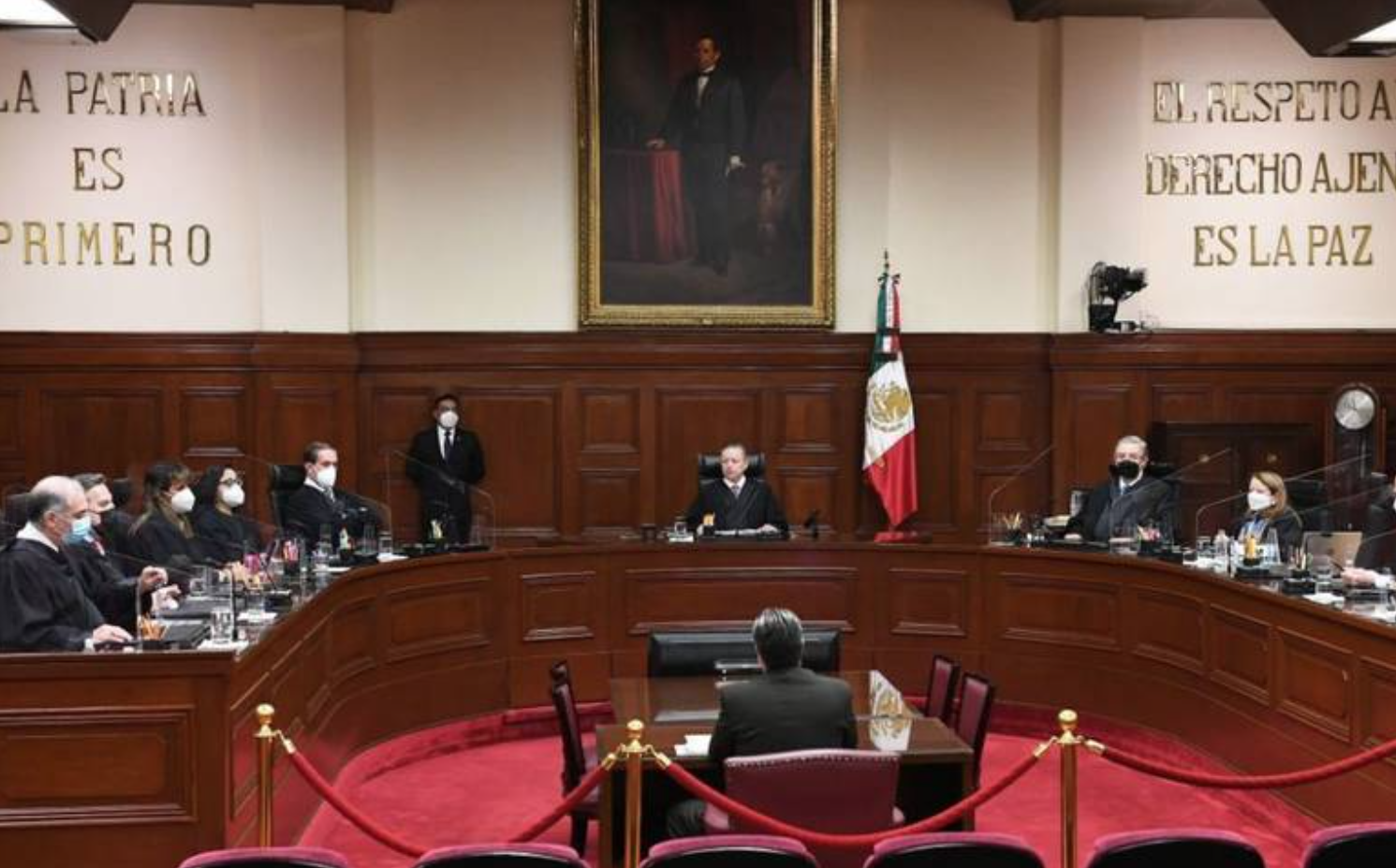For some time now, relations among the Supreme Court of Justice of the Nation and the Executive and Legislative branches in Mexico have been strained. Since Minister Norma Piña became the first woman to preside over the Supreme Court, the pressure from the National Palace has not ceased. The disputes began on February 5, Constitution Day, when the minister did not stand up when she was introduced to the president. After the incident, the President emphasized: “It was not necessary, since it is an autonomous power and that perhaps she was tired”. But days later he stated: “The minister is there for me”. The comment was taken as aggression and generated several criticisms.
Upon taking office, the new president stated that “the Court will speak through its sentences”, which has been happening. To this extent, the president’s displeasure with the highest Court, allows us to see the functioning of checks and balances. Currently, in Mexico, the ruling party Morena has a simple majority in the Congress of the Union and holds the presidency. However, the Court headed by Norma Piña has shown signs of being a counterweight to laws that hurt democracy or violate Human Rights.
The Court, so far, has fulfilled its functions as arbiter between powers, but this has not been an easy path. With these decisions, it has become a target of the presidency, which has deepened and radicalized its attacks against the ministers.
On April 18, the Court declared that the decree passing the National Guard, a security corps to the Secretariat of National Defense, was unconstitutional. This was one of the President’s key reforms and upon being declared unconstitutional, Andrés Manuel López Obrador accused, without evidence to date, that Piña wanted to negotiate with the Secretariat of Citizen Security. In view of these incidents, government sympathizers have demonstrated at the Judicial Power headquarters to demand the resignation of the Court’s president, whom they accuse of treason.
After the approval in Congress of the electoral reform “Plan B” by pro-government political forces, the opposition challenged its content and the violations of the legislative process, taking it to the Supreme Court. Finally, the Minister of the Court, Javier Laynez, granted the indefinite suspension stopping the reform. López Obrador then called him “Your Serene Highness” and accused him of not being elected by the people and not being a popular representative. Let us remember that the Mexican judicial system is characterized by a merit-based system and for the appointment of electoral magistrates and ministers, the Senate is the authority in charge. However, the rejection of “Plan B” has led to the radicalization of the ruling party against the Court.
On May 7, one day before Minister Alberto Pérez Dayán presented to the plenary the project to invalidate the second part of this reform, the Presidency’s Legal Counsel urged the highest court to ensure that the reporting minister would not vote, arguing that he was not sufficiently independent. This part of the electoral reform was also finally invalidated with nine votes in favor and two against.
The following day, the president dedicated a large part of his morning radio conference to disqualifying the Supreme Court and called its ministers corrupt. In addition, he announced that one month before the end of his term, if his party achieves a qualified majority in Congress, he will send an initiative to have judges elected by popular vote. This, if implemented, would not only be an attack on the judicial system but on Mexican democracy itself.
For the moment, the protesters – influenced by a radicalized discourse – remain outside the Court’s headquarters and have intensified their protests with insults and accusations. In addition, the discourse has penetrated the Congress and certain senators and representatives of the ruling party accuse the Court of seeking to substitute the legislature in its functions.
The leader of Morena in the Senate, Ricardo Monreal, threatened that there are several mechanisms to call the ministers of the Court to account, such as hearings and impeachment. Meanwhile, the party itself accuses the Court of forging a lawfare, a term used to speak of a soft coup d’état through judicial decisions against a president or political figure.
In short, the objective of the radicalization of the ruling party’s rhetoric towards the Judiciary is to pave the way for justifying judicial reform and campaigning with it. And, on the other hand, to erode the independence of the judicial system and thus align it to the presidential orbit.
Undoubtedly, relations between these powers will continue to be strained as the Court has not yet analyzed the first part of “Plan B”. In the case of invalidating it, the siege and the campaign of discredit and persecution against the ministers will probably deepen.
*Translated from Spanish by Janaína Ruviaro da Silva











